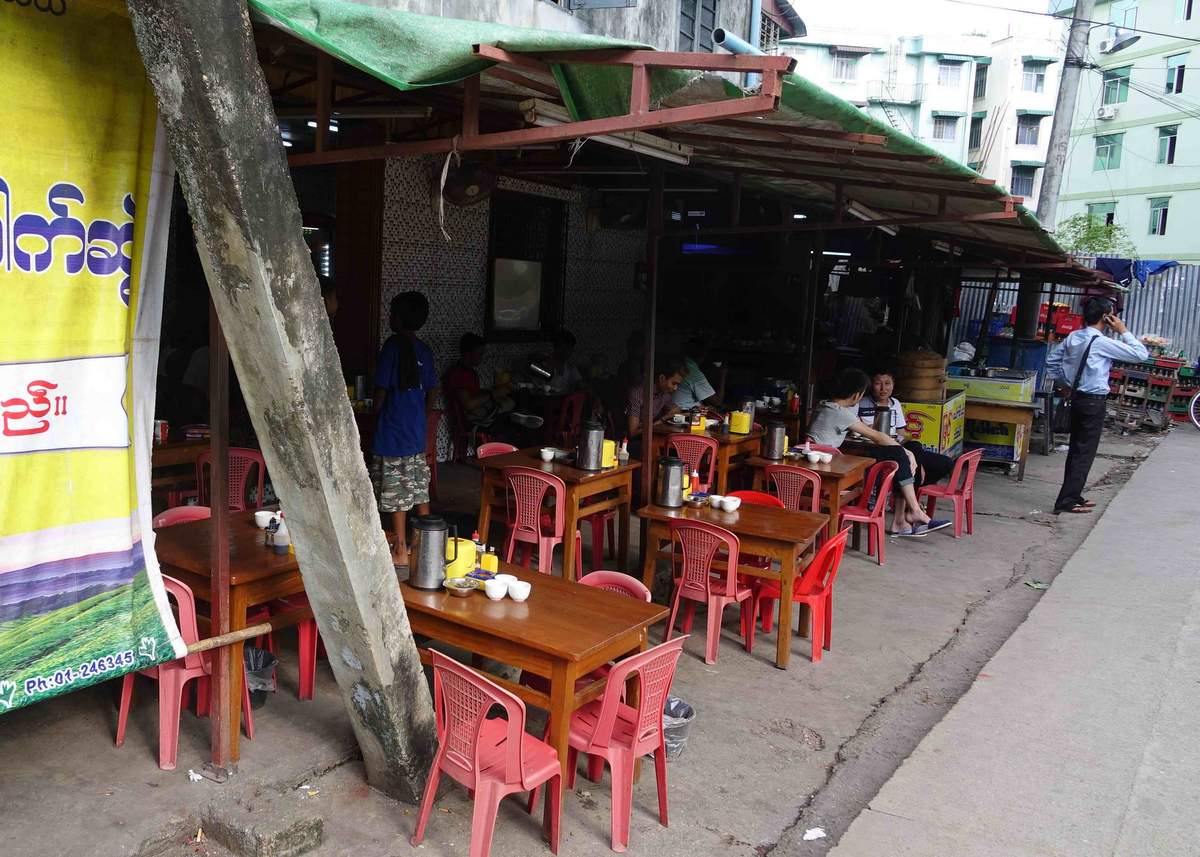A new microfinance programme backed by the US government’s foreign aid agency USAID aims to promote the growth of medium-sized businesses in Burma and fill the “missing middle” in the country’s economy.
The programme, announced on Tuesday at a press conference held at the US embassy in Rangoon, will partner the agency with five local microfinance institutions (MFIs) to provide US$10 million in loans to businesses that would otherwise have difficulty financing their expansion.
“The lack of access to credit is one of the biggest constraints for smaller businesses,” said Teresa McGhie, USAID’s mission director for Burma.
The loan guarantee programme was signed with ASA Microfinance, LOLC Myanmar Micro-Finance Company, Myanmar Development Partners Company, Pact Global Microfinance Fund, and Proximity Designs. The MFIs will cover 50 percent of their losses for loans that qualify for the programme.
While the programme aims to make it easier for small businesses to get loans, qualifying to join forces with USAID was far from easy, said one of the agency’s partners in the undertaking.
“To be able to participate and pass all the due diligence tests and US standards was difficult for us and a lot of work but we are very happy and proud,” Phyu Yamin Myat, managing director of Myanmar Development Partners, told DVB on Wednesday.
She said they will now be able to grant loans of up to $5,000 to companies across Burma. She added that recent clients have included a range of businesses, from small grocery stores, beauty salons and tea shops to agriculture-related industries.
Phyu Yamin Myat said that while her company would face some challenges of its own in fulfilling its mission to increase the capacity of other Burmese businesses, she was confident of success.
“Human resources is the only real challenge we are facing. We need to train more staff as we want to extend to rural areas,” she said.
For Burma’s economy as a whole, however, many other challenges remain — notably, its weak legal frameworks and general lack of infrastructure, including inadequate access to electricity in remote areas.
Addressing these problems will inevitably require substantial investment by the national and regional government, as well as by large companies. But, according to McGhie, “small businesses are the real engine of economic growth that will create jobs and inclusive growth for the future.”
To illustrate the difficulties many smaller companies face, she told the story of a mill owner she met recently who wanted to upgrade but couldn’t because she needed a loan of $2,000 — more than most MFIs would provide.
[related]
“People like her are not alone,” said McGhie. “This shows us that there is this missing middle.”
Big businesses usually have no trouble securing major loans through big commercial banks, and individuals can often receive smaller loans up to about $200, but finding a lender that will provide anything in between is much more difficult.
“There is this real missing opportunity for small and medium enterprises, and those are the ones that are so critical to economic growth,” explains McGhie.
USAID estimates that the new programme will assist more than 5,000 people by guaranteeing more substantial loans by microfinance entities.
McGhie said she hopes the programme “will fill the missing gap, the missing middle, and the guarantee will also complement some new regulations from Financial Regulatory Department and the Ministry of Finance.”
“These new directives allow microfinance institutions to expand their lending responsivity through deposit-taking and through borrowing from domestic banks, so that increases the amount of capital that’s available to microfinance institutions so they can make those larger loans,” she said.



